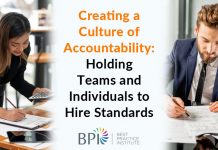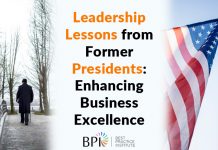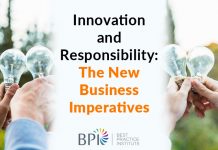A five-point strategy
Here are five steps to lead your organization into the 21st century by connecting talent to the business strategy.
1. Leadership. Select a team to champion the integration. Harmonising talent management across multiple business units requires leaders with authority, diplomacy, and technical savviness.
The team should include someone from the C-suite, and will likely be driven by someone from HR.
At CDW Corporation, integration was led jointly by the company’s senior director of talent acquisition and its senior director of organizational capability.
At E.W. Scripps, it was led by the HR director and the vice president of talent management. A successful ITM team will be cross-functional, be composed of genuine change agents, and have full support from the top.
2. Diagnosis. There are many great reasons to integrate talent management, but it is essential to know the particular rationale why your company needs ITM and what it expects ITM to accomplish.
Meaningful conversations with key leaders across the organisation are a critical part of forming the diagnosis.
3. Technology. One reason diagnosis is important is because it guides your selection of ITM software. Will the solution you choose deliver in the areas your company especially needs it to?
CDW used a questionnaire to identify critical features of the desired ITM software; the responses became a list of criteria the company used in comparing products and suppliers.
Destination Hotels & Resorts identified three supplier “finalists,” and then asked to interview customers of each.
Many companies choose to develop their ITM technology in-house. Best Practice Institute surveyed eight large corporations that had attempted to achieve ITM. About one-third of those are using internally developed ITM systems.
4. Buy-in. The previous steps are all crucial to achieving buy-in. Training and communication also can help with the reception during rollout.
Destination Hotels pulled out all the stops to spread the word about its new ITM technology, including classroom sessions, webinars, memos, and internal web portals.
5. Implementation and evaluation. Integrating talent management does not happen overnight. It is a continuous process of keeping talent activities connected to corporate strategy and to each other.
Successful implementation includes systematic evaluation. Is your ITM system producing the desired results? Microsoft, CDW, and Amway all use employee surveys to evaluate their ITM success.
Don’t forget about results
In a survey conducted by Best Practice Institute, companies with successful ITM processes reported these benefits:
• Improved use of existing talent through such ITM-facilitated methods as talent referral programmes and cross-functional moves
• Improved employee engagement; Microsoft’s employee attitude surveys revealed a more positive outlook after implementing ITM
• Improved succession planning
• Better employee retention.
Integrating talent management does not happen overnight. It is a continuous process of keeping talent activities connected to corporate strategy and to each other.
Becton Dickinson-Japan, a medical equipment company that was an ITM pioneer in the mid-2000s, reported a 130% increase in revenue since integrating its talent functions.
It is no surprise that when a company’s corporate strategy is driving its talent decisions, and its various talent functions are supporting each other harmoniously, productivity can skyrocket.
How far along are you in integrating your business and talent strategy?
Louis Carter is the CEO of Best Practice Institute, an association and solutions center for executives, consultants, and thought leaders at all levels of global organizations who pioneer and share best and innovative practices in leadership and management. He is the author of over 10 books on leadership development and organization change including Best Practices in Talent Management, Best Practices in Leadership Development and Organization Change, and the Change Champion’s Fieldguide. He also leads the BPI team that enables employees from Global organizations to get consistent, quick positive feedback and tracks change over time, based on the messages in this article. See the video online for the SaaS product that provides consistent, quick positive feedback and tracks change over time at: http://www.skillrater.com. If you are interested in a demo contact us using this form or become a member of Best Practice Institute here.
He is also a headline speaker at Talent Management Asia 2015.
Here are some of Louis Carter’s past blogs on linkedin:
The Cost of Lying and What to Do About It
https://www.linkedin.com/pulse/your-candidates-lying-louis-carter?trk=prof-post
Is Your Brain or Game Theory Sabotoging Your Success?https://www.linkedin.com/pulse/your-game-brain-way-success-louis-carter?trk=prof-post
The Neuroscience of Conversation
https://www.linkedin.com/pulse/neuroscience-conversation-louis-carter?trk=prof-post
Secrets to Integrating All Parts of Talent Management
https://www.linkedin.com/pulse/20140818192713-123848-if-you-want-to-keep-your-sanity-align-your-talent-functions
Find Louis Carter’s amazon profile at: http://www.amazon.com/-/e/B002IYU4HA










